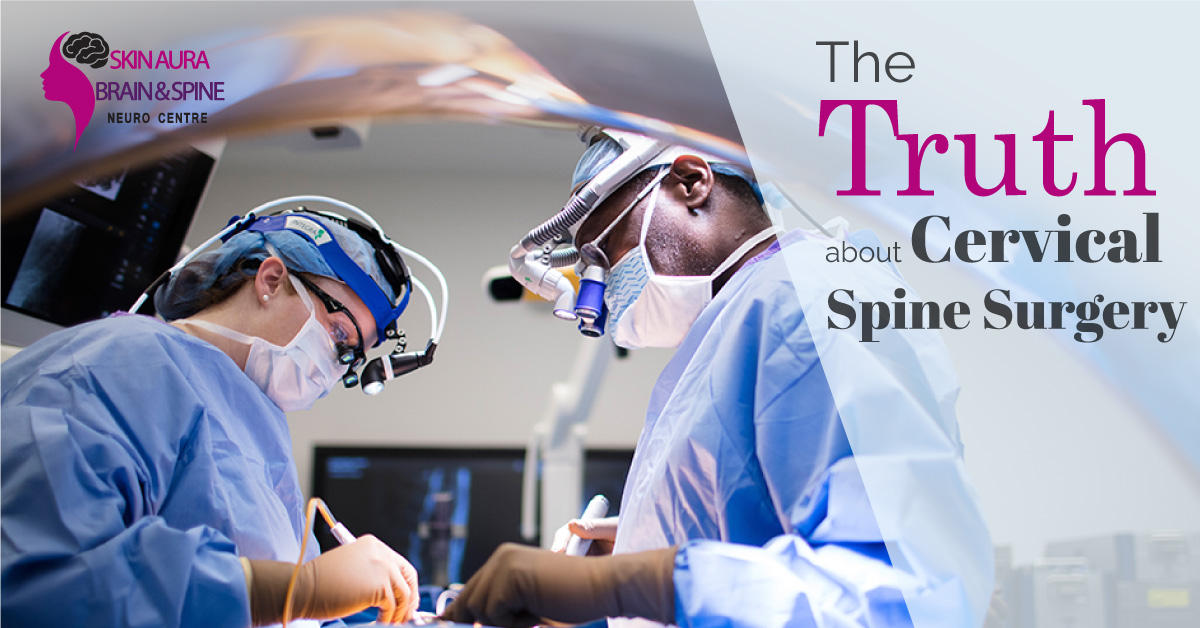Cervical spine surgery may be recommended by your spine surgeon in Gurgaon or neurosurgeon to relieve neck pain, numbness, tingling, and weakness, restore nerve function, and stop or prevent abnormal cervical spine motion in your neck.
The best doctor examines the cervical x-ray for spine surgery in Gurgaon. This is accomplished by removing a disc or a bone and fusing the vertebrae with a bone graft, which your surgeon can place either in front of or behind the spine. The bone graft can be of two types: an autograft (bone taken from your own body) or an allograft (bone taken from a donor) (donor bone from a bone bank). Metal plates and screws are sometimes used to stabilize the spine, which is a good thing. Instrumentation is the term used to describe these techniques.
As a result of surgical stabilization of the vertebrae, abnormal motion is stopped, and function is restored to the spinal nerves. An alternative to spinal fusion is cervical disc replacement, which involves using an artificial disc to allow neck movement while stabilizing the spine.
What are the causes of cervical spine surgery in Gurgaon?
Indications for cervical spine treatment in Gurgaon include various spinal neck issues. Generally, surgery is performed to treat degenerative disorders, trauma, and instability of the skeleton. These conditions can put pressure on the spinal cord or on the nerves that originate in the spine.
How is Cervical Spine Surgery used to treat different types of conditions?
Degenerative Disc Disease
In degenerative disease, the discs or cushion pads between your vertebrae shrink, causing wear and tear on the disc, which may eventually result in herniation of the disc. In addition, you may have arthritic areas in your spine. Because of the pressure placed on the spinal nerves, this degeneration can result in pain, numbness, tingling, and weakness.
Cervical Deformity
Patients who have a deformity in their cervical spine (such as swan neck deformity or hyperlordosis) may benefit from spine treatment in Gurgaon to straighten and stabilize the spine. Abnormalities of the craniovertebral junction, also known as upper neck disorders, can hurt the spine’s cervical segment.
Because the neck is so flexible, it is particularly susceptible to injury. Cervical vertebrae can be fractured or dislocated due to certain types of injuries. In addition, the spinal cord may be damaged due to a severe injury as well. Patients who have suffered a fracture, particularly those who have suffered spinal cord damage, are subjected to surgery to relieve pressure on the spinal cord and stabilize the spine.
In the same way that any surgical procedure carries risks, cervical spine surgery is no exception. Complications may include injury to your spinal cord, nerves, esophagus, carotid artery, or vocal cords; non-healing of the bony fusion; failure to improve; instrumentation breakage and loss; infection; and bone graft site pain. Any of these complications could result in additional spine surgery treatment.
Besides phlebitis in the legs, blood clots in the lungs, and urinary problems, there may be other complications. Paralysis and even death are possible complications in rare cases. Your surgeon will discuss the potential risks with you before you are asked to sign a consent form for surgery.
What is the difference between revision surgery and traditional surgery?
Correction of a deformity is a common reason for revision surgery. The nature of the problem determines the type of revision required. For example, operating on both the front and back of the neck may be necessary during this procedure.
The incidence of complications following cervical spine revision surgery is higher than that of complications following first-time surgery. In addition, pain relief and nerve function restoration are more challenging to achieve in revision surgery. Patients should also be aware that having revision surgery increases the likelihood of developing long-term neck pain in the future.
